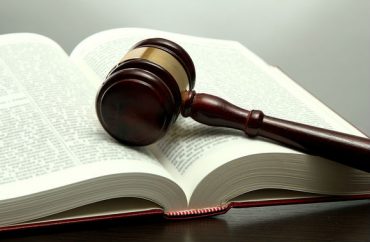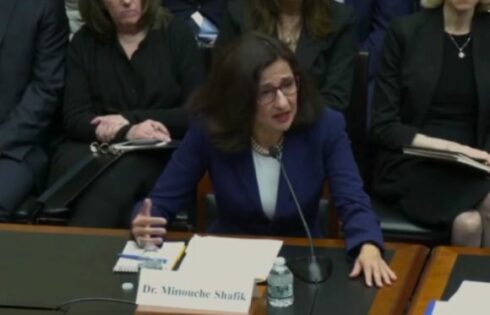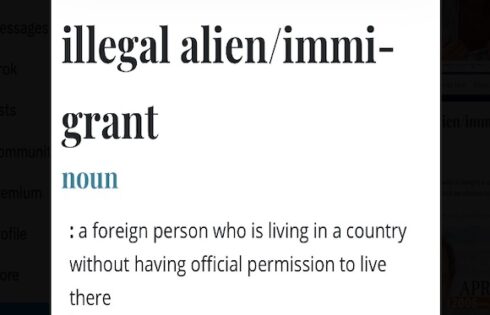
Free speech advocacy group claims program stifles students’ free speech rights
CHICAGO — A group challenging the constitutionality of the University of Illinois’ bias response system received its first hearing before the U.S. 7th Circuit Court of Appeals in Chicago on Thursday.
The hearing addressed a preliminary injunction motion filed by Speech First, a nationwide free speech advocacy organization, seeking to order the University of Illinois to immediately suspend its Bias Assessment Response Team program.
Speech First filed the lawsuit on behalf of a number of anonymous students who believe the university’s bias reporting system amounts to official surveillance of their expression on campus and that the university takes coercive action against students named in reports.
What’s more, under the program campus community members may anonymously report statements by individuals whether they take place in a private conversation or in a classroom environment.
Sitting on the three-judge panel hearing the motion were Michael Brennan, Amy St. Eve and Michael Scudder. All three judges were appointed by President Donald Trump.
During the hearing, Speech First attorney Michael Connelly argued that the bias response team at the University of Illinois, on which a member of campus law enforcement sits, is no different than the system recently challenged at the University of Michigan.
In September of last year, the U.S. 6th Circuit Court of Appeals approved Speech First’s request for a preliminary injunction against Michigan, suggesting Michigan’s speech code and bias response team violated students’ First Amendment rights.
In response to this ruling, Michigan settled with Speech First, dismantling its bias team and replacing it with a “Campus Climate Support” program that does not contact the subjects of complaints, only reporting parties.
Connelly suggested two examples at Illinois that he said proves the university takes coercive action against students who find themselves the target of a report, one dealing with a Facebook post that was reported and another having to do with an e-mail sent to students on campus.
Connelly argued that while the school doesn’t “prosecute” student speech, an e-mail to an accused student from a campus administrator does carry some weight. Speech First has argued that administrators contacting students to discuss their speech amounts to a “process-is-punishment” mechanism to prevent students from speaking out.
“The lesson is, we are watching you and you better watch what you say,” Connelly told the judges, noting that a student who receives an email from BART for speaking out on a specific issue is less likely to speak out on that issue again.
Connelly also argued that while the university may not itself prosecute students, BART provides information to law enforcement, which is effectively the same thing.
In a series of questions to Connelly, Judge St. Eve noted that the standard for a preliminary injunction was high, with the plaintiff needing to show a “specific, particularized injury.”
Ishan Bhabha, an attorney for the university, argued that no such injury had been demonstrated by Speech First.
Bhaba said the evidence of speech suppression provided by Speech First was “second or third-hand hearsay” and bore no resemblance to how the program actually worked on campus.
Bhaba noted that students frequently have campus discussions on immigration, abortion, and gender identity, pointing to an event on the Illinois campus where an Immigrations and Customs Enforcement agent came to speak on campus.
He further argued the Illinois case is different in scope than the complaint against Michigan, as Michigan allegedly threatened students with police action if they did not respond to requests to meet with diversity officers if summoned.
Bhaba argued Illinois’ policy “vigorously, fulsomely and wonderfully” supports speech, calling Speech First’s notion of the First Amendment “bizarre.”
The two sides also tussled over Illinois’ use of “non-contact directives,” in which the school prevents the subject of a complaint from contacting the individual who made the report and the school’s
“Bias Incident Protocol” program, which forces students to gain prior approval to hand out leaflets for non-campus elections. The defendants have argued this is a moot point, as the school discontinued the practice last year.
Connelly told the judges he understands the need for bias response teams if they are used for student counseling purposes, but argued the Illinois system was designed to punish those who speak, not comfort those who hear speech they don’t like. He noted that the ability of students to report anonymously – the majority of whom do – is proof the program targets those expressing themselves and not the “victims” of such speech.
The case is on appeal from the U.S District Court for the Central District of Illinois, where a district judge last September ruled that Speech First lacked standing to bring a case.
MORE: At University of Illinois, 265 bias complaints enforced by literal ‘speech police’
IMAGE: Shutterstock.com
Like The College Fix on Facebook / Follow us on Twitter




Please join the conversation about our stories on Facebook, Twitter, Instagram, Reddit, MeWe, Rumble, Gab, Minds and Gettr.